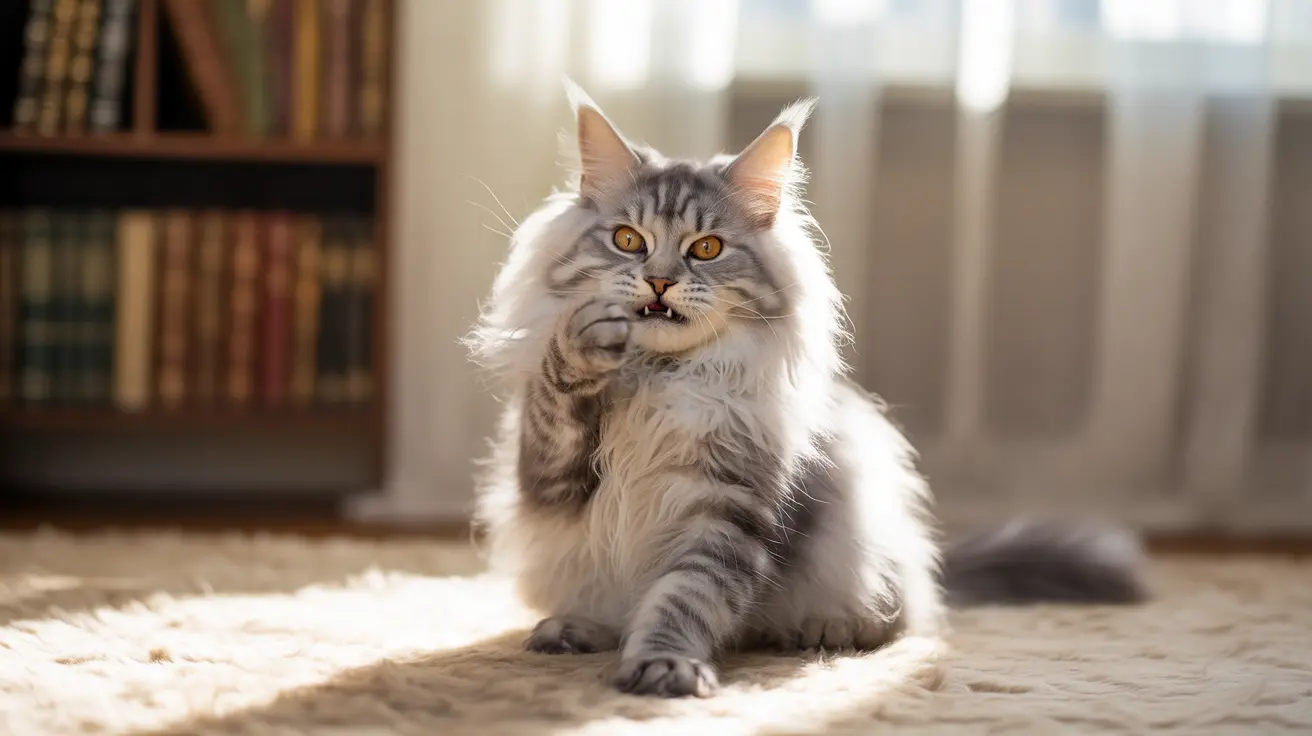Common Medical Conditions Causing Sulfur Odors
Dental Disease and Oral Health Issues
One of the primary causes of rotten egg smell in cats is dental disease. Up to 85% of cats over three years old suffer from some form of periodontal disease, which allows bacteria to produce sulfur compounds. These bacteria thrive in decaying tissue and infected gums, creating that characteristic sulfurous odor.
- Bad breath that smells like rotten eggs
- Drooling or pawing at the mouth
- Difficulty eating or loss of appetite
- Red, swollen, or bleeding gums
Digestive System Problems
Gastrointestinal issues frequently cause sulfurous odors through excessive gas production or improper digestion. Common digestive problems include:
- Inflammatory bowel disease
- Food allergies or intolerances
- Parasitic infections
- Bacterial imbalances in the gut
Anal Gland Complications
Anal gland problems can create an intensely unpleasant rotten egg smell. These small glands can become impacted, infected, or express inappropriately due to stress or illness. If you notice your cat scooting or excessively licking their rear area along with the smell, anal gland issues might be the culprit.
Diet-Related Causes
Sometimes, the source of the smell lies in your cat's food bowl. High-protein diets or sudden dietary changes can lead to sulfurous gas production during digestion. Additionally, many adult cats are lactose intolerant, and consuming dairy products can result in digestive upset and foul-smelling gas.
Hygiene and Grooming Issues
Poor grooming habits, whether due to obesity, arthritis, or illness, can lead to the accumulation of waste matter in your cat's fur. This is particularly common in:
- Long-haired cats
- Elderly cats
- Overweight cats
- Cats with mobility issues
Treatment and Prevention
Addressing a rotten egg smell in your cat typically involves:
- Regular veterinary check-ups
- Professional dental cleanings
- Maintaining proper grooming routines
- Ensuring appropriate diet and nutrition
- Prompt treatment of any underlying medical conditions
Frequently Asked Questions
Why does my cat smell like rotten eggs and what health issues could cause this odor?
A rotten egg smell in cats can be caused by various health issues, including dental disease, gastrointestinal problems, anal gland disorders, or infections. This odor typically indicates a medical condition that requires veterinary attention.
How can dental problems like periodontal disease lead to a sulfur smell in my cat's breath?
Periodontal disease allows bacteria to multiply in the mouth, producing sulfur compounds as they break down tissue and food particles. These bacteria thrive in infected gums and decaying matter, creating the characteristic rotten egg smell.
Can my cat's diet make them smell like rotten eggs, and which foods contribute to this?
Yes, certain foods high in protein or sulfur can cause sulfurous gas during digestion. Fish-based foods, eggs, and dairy products are common culprits. Sudden diet changes can also disrupt gut bacteria and cause temporary odors.
What role do anal gland issues or infections play in causing a rotten egg smell in cats?
Anal glands contain naturally pungent secretions that can smell like rotten eggs when expressed. Problems such as impaction, infection, or stress-related expression can release these secretions, causing a strong sulfurous odor.
How can poor grooming or litter box hygiene result in a cat smelling like sulfur or rotten eggs?
Poor grooming can lead to the accumulation of feces and urine in the fur, particularly around the rear area. Inadequate litter box cleaning can also cause waste matter to stick to your cat's fur, resulting in persistent unpleasant odors.
If your cat develops a rotten egg smell, it's important to consult with your veterinarian to identify and treat the underlying cause. Regular preventive care and maintaining good hygiene practices can help prevent many of these odor-causing conditions.






